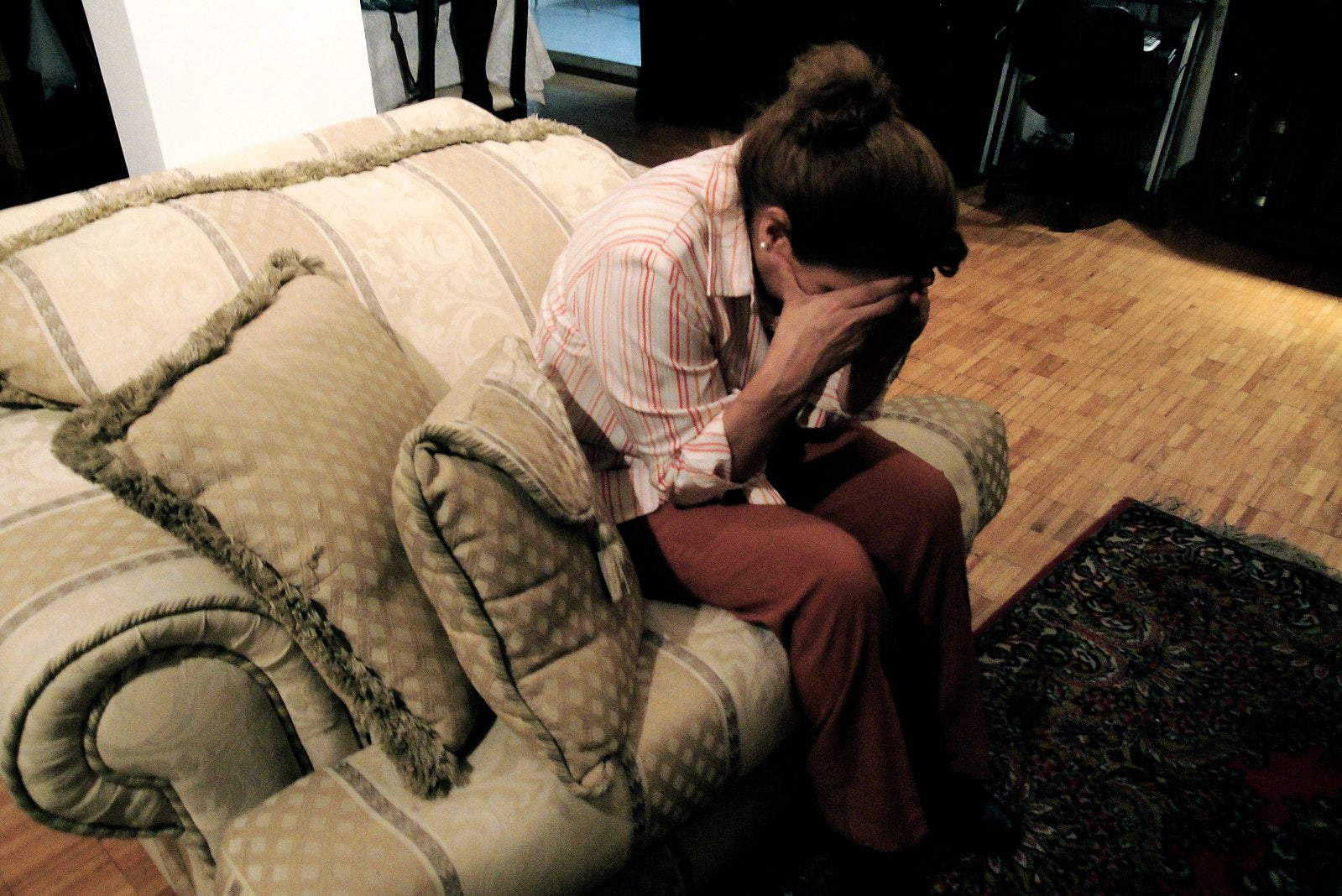Note: This article does not constitute medical advice. Please consult with your doctor before making any decisions regarding your health.
Depression is a serious condition that affects millions of people. But if you're pregnant, how do you decide which medication to take?
If you have been diagnosed with clinical or major depressive disorder, it's likely that at some point you've considered whether taking an antidepressant may help treat your symptoms. Depression affects about 7 percent of American adults each year. And while there are several over-the-counter treatments -- such as herbal remedies like St. John’s Wort (Hypericum perforatum), prescription sleep aids and pain relievers – nothing beats having a doctor who knows exactly what kind of depression you suffer from and offer an effective treatment plan.
One thing doctors need to consider when prescribing any drug, including those prescribed for depression, is its effect on the foetus. So before picking up a bottle of Celexa, Lexapro or Zoloft, here is everything you should know about using these powerful but potentially dangerous substances safely.
How drugs get approved for use
Before a new medicine is made widely accessible to consumers, scientists must conduct studies to prove that the drug actually works and isn't harmful. This means testing out the treatment in humans first. The FDA approves medicines based on data collected through two main methods: randomised controlled trials (RCT) and observational studies, also known as non-randomised controlled trials (NRCT).
RCTs involve assigning study subjects randomly into one group receiving the experimental treatment or another receiving no treatment or placebo control. Observational studies compare groups of patients who receive either real treatment or similar placebos. These studies are often conducted by independent research organisations that collect and analyse information independently of pharmaceutical companies. In both cases, researchers look at changes within the patient population after they begin treatment. If the results show that the treatment improves overall health or reduces complications, then the FDA will approve the drug for public consumption.
As more women choose to delay childbearing until their 30s and 40s, however, many experts say we'll see an increase in prescriptions written for mood disorders like depression. According to the US Centers for Disease Control and Prevention, between 2002 and 2005, 1 million births were affected annually due to mothers' substance abuse or mental illness. Women trying to conceive or experiencing infertility also account for increased rates of depression diagnosis and treatment.
The different types of antidepressants available
There are three classes of antidepressants commonly used today: selective serotonin re-uptake inhibitors (SSRI), tricyclic antidepressants (TCA) and monoamine oxidase inhibitors (MAOI). Each class has varying degrees of effectiveness, safety and potential side effects.
Tricyclic Antidepressants (TCA): TCA was originally developed in Germany in the 1930s and remains popular among older generations. TCAs work by increasing levels of neurotransmitters called norepinephrine and dopamine throughout the brain. However, because this process takes longer than SSRI does, the body doesn't become accustomed to the change quickly enough, resulting in possible withdrawal symptoms. Some common examples include nausea, diarrhoea, restlessness and insomnia.
Selective Serotonin Re-uptake Inhibitors (SSRI): Also referred to as serotonin uptake inhibitors, SSRIs affect only certain areas of the brain where serotonin exists. Because the chemical makes the most sense for regulating mood, it became the basis for developing newer, safer antidepressants. Like other antidepressants, SSRIs decrease production of chemicals called "neurotransmitters" that send signals across neurons in our brains. One big difference between them and others is that SSRIs block receptors specifically targeted by toxic amounts of serotonin rather than all five receptor sites found in the human brain. When someone stops taking an SSRI, the amount of unblocked serotonin builds back up, leading to feelings of anxiety, panic attacks and agitation.
Monoamine Oxidase Inhibitor (MAOI): MAOIs inhibit enzymes responsible for breaking down amino acid tyramine. Tyramine is produced naturally by foods containing high protein content, so consuming large quantities of red meat, cheese, chocolate and aged wines can trigger unpleasant reactions. Side effects include vomiting, rash, seizures and hallucinations. Unlike the other two categories of antidepressants, MAOIs don't cause weight gain.
Potential side effects
When deciding which type of antidepressant would best suit your needs, talk to your physician about potential risks involved with each specific drug. While not every person experiences negative side effects with every drug he or she takes, some side effects are more common than others. Here are just a few of the general side effects associated with antidepressants:
- Drowsiness - Excessive drowsiness, fatigue and difficulty concentrating might occur early on in therapy but usually subside within weeks.
- Nausea and vomiting - Nausea occurs in approximately 10% of depressed individuals starting on antidepressants. It typically lasts less than 24 hours unless the woman becomes nauseated again shortly afterward.
- Sexual dysfunction - Decreased libido, vaginal dryness and orgasm difficulties are very rare.
- Increased risk of suicide attempts - Although uncommon, antidepressants can sometimes worsen suicidal thinking and behaviour.
- Heart attack - Heart failure, abnormal heart rhythms and stroke are extremely rare.
- Suicidal thoughts/behaviour - About 4%-6% of children and adolescents under 18 report thoughts of attempting suicide when being treated with antidepressants compared to 0.1%-0.2% of untreated youth.
Research suggests that black people are more susceptible to adverse side effects from antidepressants. Studies comparing Caucasians to Asians suggest Asian populations experience fewer side effects from antidepressants, possibly related to genetic variations linked to metabolising particular drugs
Antidepressants and birth outcomes
It's important to note that even though antidepressants carry a warning label stating that they shouldn't be taken late in gestation, some still end up crossing the placenta. For example, fluoxetine (Prozac®) crosses the placental barrier easily and stays in the infant bloodstream long beyond the recommended timeframe for breastfeeding moms. As a result, babies born prematurely or weighing low could develop breathing problems, feeding difficulties and infections.
Other infants exposed to antidepressants prenatally later develop autism spectrum disorders, attention deficit hyperactivity disorder and schizophrenia. Research shows that exposure to prenatal antidepressants increases the odds of premature delivery by nearly 20%, suggesting that expectant mothers already suffering from conditions that require hospitalisation should avoid antidepressants altogether.
However, recent evidence points toward lower incidences of miscarriage following antidepressant usage. A 2009 review published in Obstetrics & Gynaecology examined 15 studies involving almost 2,000 pregnancies and reported decreased rates of spontaneous abortions and gestational diabetes following antidepressant use. Since then, additional studies have shown similar findings regarding miscarriages and higher birth weights. Still, since many women aren't aware of the dangers posed by antidepressants, it's advised that anyone considering one consult her healthcare provider immediately if she begins to experience excessive bleeding, spotting or cramping.
Stopping the drug during your pregnancy
Women whose physicians prescribe antidepressants should discuss options for stopping the medication prior to giving birth. Stopping abruptly can lead to unexpected consequences, including severe withdrawal symptoms. Your physician will advise you on how much time to wait before discontinuing the dosage depending upon your individual case. He or she will also recommend alternative forms of therapy or counselling if needed.
To manage symptoms of withdrawal once you stop taking the medication, try self-help techniques. Meditation, exercise, yoga, massage therapy and acupuncture are proven ways of managing stress and feeling good without relying solely on pills.


